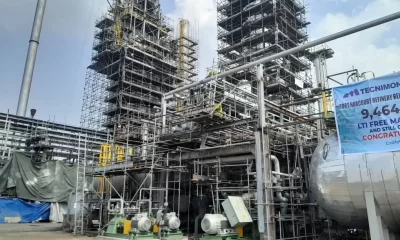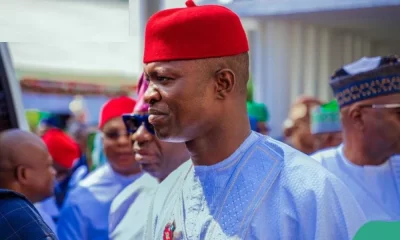News
NDLEA trains 6 West African countries on how to dismantle clandestine laboratories

The National Drug Law Enforcement Agency, NDLEA, has conducted a regional training for six West African countries on how to dismantle clandestine laboratories with a view to strengthen regional action against drug cartels.
The training, which took place in Abidjan, Côte D’Ivoire, from March 27 to 29, involving six other West African countries―Republic of Benin, Ghana, Sierra Leone, Liberia, The Gambia, Cote D’Ivoire and Nigeria―was part of an ECOWAS project known as “Organised Crime: West African Response to Trafficking” (OCWART), co-funded by the European Union (EU) and German Federal Foreign Office and executed primarily by Deutsche Gesellschaft für Internationale Zusammenarbeit (GIZ) and United Nations Office on Drugs and Crime, UNODC.
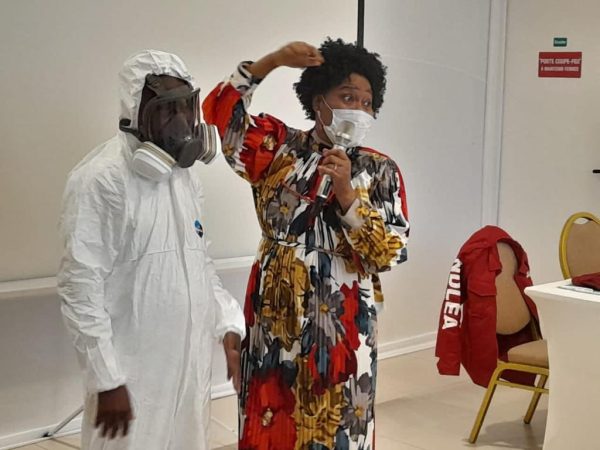
As the lead agency at the workshop, NDLEA drew from its experiential knowledge acquired from the dismantling of 21 clandestine laboratories found in Nigeria since 2011 to teach other West African countries the practical know-how of handling illicit laboratories.
A total of eight topical lectures, practicals and Q&A sessions were delivered in two days by a team of NDLEA facilitators that include Joseph Nbona Sunday (Director, Prosecutions and Legal Services); Margaret Ogundipe (Director, Forensic and Chemical Monitoring); Adebowale Rahman (Digital Intelligence specialist); Anebi Ajilima (Forensic and crime lab expert) and Felix Tagbo (Operation specialist).

The first two days of the workshop dwelt on various perspectives on the subject matter, including the anatomy of a clandestine laboratory, basic clandestine lab investigation techniques, intelligence gathering, operations safety and guidelines for dismantling clandestine laboratories, clean-up and decontamination of illicit labs and sites, basics of controlled delivery and prosecuting cases of clandestine laboratories.
The workshop was wrapped up on the third day with a practical exercise on the dismantling of a mock clandestine laboratory at the Abidjan Police Academy, which the Nigerian contingent set up and the participants, divided into teams, took turns to dismantle and decontaminate.
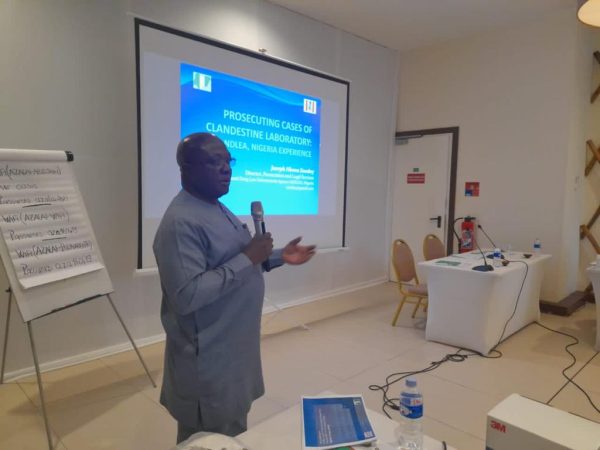
The workshop’s seven participating countries sent in representatives from relevant organisations, including Ghana’s Narcotics Control Commission; Sierra Leone’ Serious Organised Crime and Counter Terrorism Coordination Directorate; Drug Law Enforcement Agency of the Gambia (DLEAG); Transnational Crime Unit of Liberia and the INTERPOL.
The Republic of Benin was represented by the Organised Crime Fighting Unit (CELCO), Customs and Narcotics Office (OCERTID), while the host, Côte D’Ivoire, had representatives from Narcotics Squad from Judicial Police (DPSD), Customs, National Gendarmerie, Transnational Crime Unit (TCU), Forensic Police Laboratory and Joint Airport Interdiction Task Force (JAITF).
At the opening ceremony, UNODC Country Representative and its Senior Adviser, Law Enforcement, West and East Africa, Ishaqu Suman Toure, described the latitude of the workshop thus: “It is both enforcement and judicial capacity building. The project offers technical and equipment support, as well as facilitates discussion of joint operations among member countries.”
Toure, who further said, “we need regional cooperation to disrupt the transnational criminal organisations’ network,” noted that the South-South cooperation that exists among ECOWAS member states since 2014 has helped to disrupt transnational criminal activities over the years.
Similarly, Mr Kouma Yao Ronsard, Secretary General of the Inter-ministerial Committee for the Fight against Drugs, who represented the Minister of Interior and Security for Côte d’Ivoire, General Vagondo Diomande, noted: “This workshop will ensure that law enforcement agencies across the region are equipped with the modern knowledge and equipment to fight transnational organised crime.”
He also underscored the need for cooperation among law enforcement agencies in West Africa. “We need cooperation, especially bilateral cooperation.
The new law in Cote D’Ivoire gave it the power to cooperate with states in the fight against drug and human trafficking. We need cooperation to break this chain. Cote D’Ivoire has cooperation with Nigeria.
No one country can say, “there is no drug in my country,” the reality is, we haven’t seen them and or don’t know yet of the techniques of the criminals.”
Dr. Amado de Andrés, UNODC Regional Representative for West and Central Africa, in his speech before presenting certificates to the participants, said: “All countries in the West Africa region need to cooperate. And we need Nigeria more in the participation of conventions against organised crime.”
He said the purpose of bringing all the countries together is to break the language barrier.
“In the next five years, we will have to work together, so that your combined expertise can be used to train other regions of the world.
We are trying to foster South-South cooperation in a way to make it effective as to strengthen security and entrench stability in the region”, he told the participants
News
Ododo surrenders Yahaya Bello to EFCC

Operatives of the Economic and Financial Crimes Commission (EFCC) have arrested Yahaya Bello, former governor of Kogi state.
TheCable understands that Usman Ododo, Kogi governor, brought Bello to Abuja this morning and invited EFCC to come pick him up.
The EFCC had charged the former governor with alleged money laundering, breach of trust, and misappropriation of N80.2 billion.
In April, the commission declared Bello wanted after several attempts to arrest him proved unsuccessful.
On August 20, the court of appeal in Abuja ordered Bello to surrender himself for arraignment.
Ola Olukoyede, EFCC chairman, would later allege that Bello withdrew $720,000 from Kogi coffers to pay his child’s school fees in advance.
The anti-graft agency also filed a 19-count charge against Bello over alleged money laundering.
However, the arraignment was stalled due to the absence of the former governor.
In May, Abdulwahab Mohammed, counsel to Bello, told the court that the former governor’s whereabouts remain unknown and that he was nurturing some safety concerns.
On August 20, the court of appeal in Abuja ordered Bello to surrender himself for arraignment.
Dele Oyewale, EFCC spokesperson, had said the court’s ruling was a “vindication” of the EFCC’s stance that Bello must face trial.
Sources had told TheCable that Bello has been hiding in plain sight — holed up in the “protective custody” of the Kogi state government — since he was declared wanted by the EFCC.
News
Tinubu writes reps, seeks Oluyede’s confirmation as COAS

President Bola Tinubu has asked the house of representatives to confirm Olufemi Oluyede as the substantive chief of army staff (COAS).
Tinubu’s request is contained in a letter read by Tajudeen Abbas, speaker of the house of representatives, during plenary on Tuesday.
Tinubu said Oluyede’s confirmation is in accordance with the provision of section 218(2) of the 1999 constitution as amended and section 18(1) of the Armed Forces Act.
The president said the army chief’s contribution to the military and Nigeria makes him “well-suited” for the role.
He said Oluyede has been professional in his duties, adding that his confirmation should be done “expeditiously”.
On October 30, Tinubu appointed Oluyede as the acting COAS following the prolonged illness of Taoreed Lagbaja, the former army chief.
News
Governor Nwifuru suspends health, housing commissioners
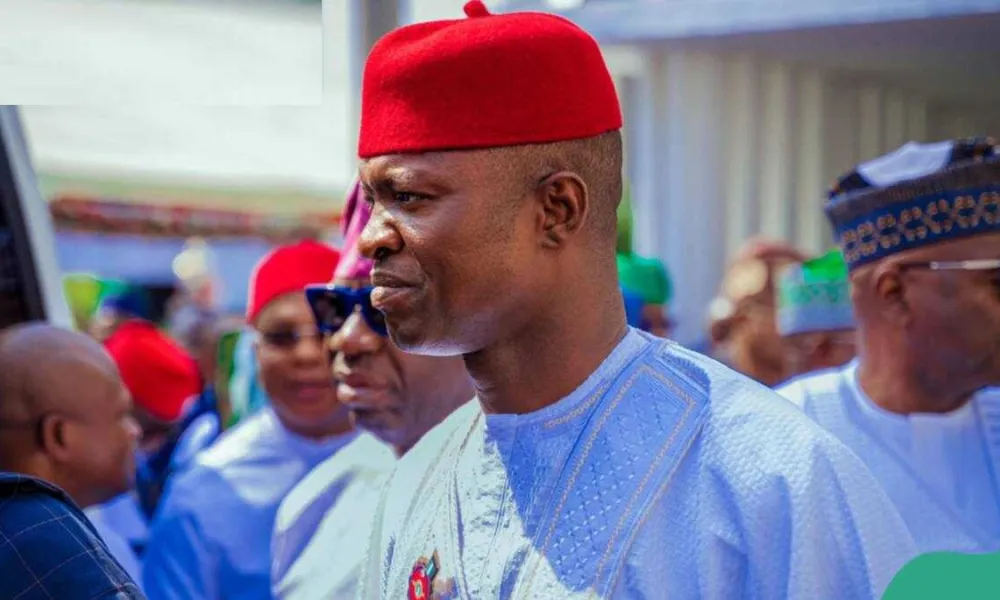
The Ebonyi State Governor, Francis Nwifuru, has suspended the state Commissioner for Health, Dr. Moses Ekuma and his Housing and Urban Development counterpart, Francis Ori.
It was gathered that they were suspended on Monday during the State Executive Council meeting in Abakaliki, the state capital.
A statement issued by the Commissioner for Information and State Orientation, Jude Okpor, which was sighted by our correspondent on Tuesday morning, read, “Following cases of gross misconduct and dereliction of duties by some government officials and matters related thereto, the Chairman of Council directed the indefinite suspension of the Honourable Commissioner for Housing and Urban Development and three months suspension of the Honourable Commissioner for Health respectively.”
It was also learnt that the development may be connected to the alleged theft of pieces of property belonging to the Ministry of Health by its officials and the reported underperformance of the Housing and Urban Development commissioner and his shoddy handling of the Amaeze Housing Scheme in the Ishielu Local Government Area of the state.
Recall that the governor was in the health ministry’s premises on Saturday night and met a scene where six officials were caught allegedly diverting government materials.
He, therefore, ordered their arrest and eventual prosecution.
-
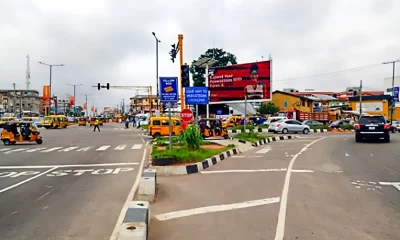
 Business1 week ago
Business1 week agoLagos state government to commence upgrade of major junctions in Ikeja axis, seeks residents’ cooperation
-

 Education2 days ago
Education2 days agoAkwa-Ibom to probe 26 schools as video depicts poor nutrition at boarding house
-

 Special Features4 days ago
Special Features4 days agoIyabo Ojo, Brainjotter, Dayo Oketola, Penzaarville, Tomiwa and others to speak at the Bodex Social Media Hangout 5.0
-
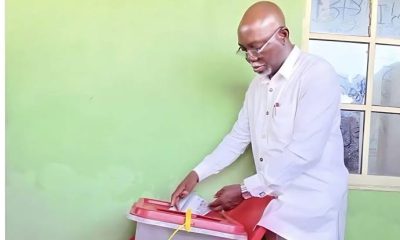
 Politics1 week ago
Politics1 week agoAiyedatiwa takes commanding lead in Ondo guber poll after winning 15 of 18 LGAs
-

 Business4 days ago
Business4 days ago31 electricity towers affected as vandals destroy transmission lines in Edo communities
-
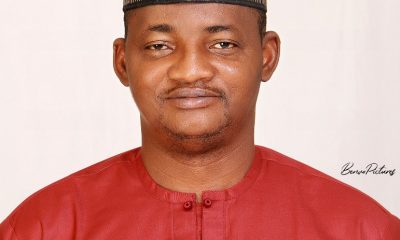
 Special Features5 days ago
Special Features5 days agoDG ARCON, Dr Olalekan Fadolapo to speak at Bodex social Media Hangout 5.0
-
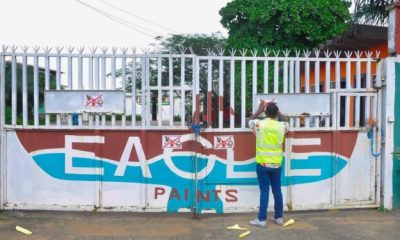
 News2 days ago
News2 days agoLagos state government shuts establishments in Gbagada, Ogudu, others over noise pollution, environmental violations
-
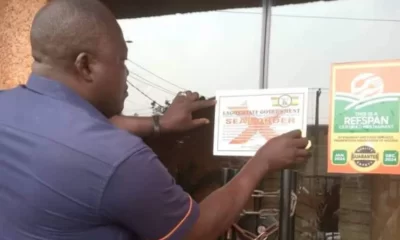
 News7 days ago
News7 days agoLagos state government seals Ile Iyan restaurant over waste disposal violations





